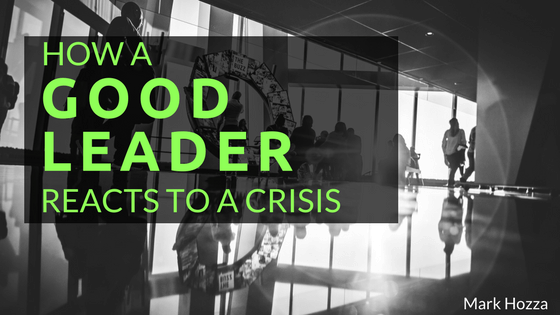Being a leader is not for everyone, and this is especially true during a crisis. A good leader will rise to the occasion, lead with integrity, and make sure everyone involved is given the tools needed to get past any challenge. The stress of a crisis can make most people panic, but a good leader can keep their cool and use their problem-solving skills to hash out a quick plan of attack.
Before we get into how to deal with a crisis, it’s a good idea to go over some examples of common problems that happen in the workplace so you can be aware of potential issues before they ever occur.
Examples of a Crisis in the Workplace
Coworkers Behaving Badly
One of the biggest culprits of stress in any workplace happens when there are employees who don’t get along, working near one another. These situations can be touchy and require a progressive approach, especially if it seems like it could get out of hand quickly. It could be a simple misunderstanding or simply that their personalities don’t line up quite right.
Bullying/Harassment
Before ever taking a leadership role, you should make sure you can act appropriately and swiftly if harassment or bullying takes place under your watch. Any harassment is a serious offense and adopting a zero-tolerance policy is strongly encouraged because it not only creates a hostile work environment, it also makes employees feel unsafe when they come in, which is never acceptable.
Natural Disaster
Crisis situations aren’t always the result of conflict between employees; mother nature could be the culprit. It’s impossible to know when and where a natural disaster will happen to be it a hurricane or outbreak of the flu, but it’s always essential for any company or organization to have a plan in place to fall back on.
Now that we’ve gone into some crisis situations that could arise while you’re leading your team, it’s necessary to know what to do if and when these crises occur.
How to Lead During a Crisis
Take a breath and then face it head on
Problems in the workplace are never fun for managers, but avoiding the issue for another day will only make matters worse as time wears on. Take a moment to assess the situation and consider your next steps. Pretending the problem doesn’t exist will only exacerbate the seriousness of the issue down the line, but you also shouldn’t just react without thinking through the problem and brainstorming solutions.
Remain objective
Crisis situations tend to make people uneasy. When problems arise, your employees may jump to conclusions and be rash in making decisions. Especially if the crisis is between two or more employees, be committed to hearing all sides of the story and only react when you’ve heard from everyone. Rushing to judgment without hearing everyone involved speak on the matter will only lead to more chaos.
Stay as positive as possible
Despite the fact that a crisis makes most people unnerved, as a leader, you need to remain assured that the issue will be resolved in the end. Staying positive will put your employees more at ease as they are likely to mimic your reaction. If you’re having a difficult time remaining positive because of the severity of the crisis, look for perspective. Is this issue is magnified because it’s being blown out of proportion? Is the crisis being driven by management? Unless you’re working in an emergency response setting, it is most certainly not a life or death situation, so do what you can to put it in perspective.
Learn from your mistakes
When the crisis is over, be willing to take a look at how you handled the situation and what you could have done differently to have a better outcome. Think about whether a response team should be put together to better prepare for future problems.
While a crisis in the workplace can be stressful for everyone involved, a good leader will rise to the challenge and help the rest of the team get control of the situation.

